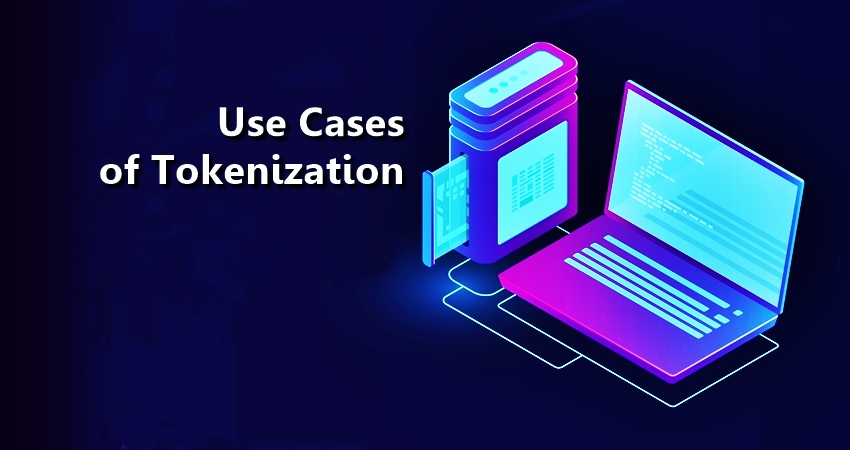Data security is crucial to any industry that deals with online transactions. The risk faced while transferring sensitive data to and fro becomes multifold.
Thus, we need a security process in place that enables us to carry out our transactions without revealing our information to any trespasser who might be eavesdropping on the exchange of data.
This is where tokenization comes into the picture.
The process of using unique identification symbols in place of sensitive data while retaining all the original information contained in the data is called tokenization.
The sensitive data is replaced with tokens, which can be mapped to the original data with the help of the tokenization system.
The tokens are rendered unusable without the tokenization system in place, as they cannot be reversed.
Tokenization has been increasingly being used by small and mid-sized businesses to improve the security of their e-commerce transactions while being compliant with industry standards and government norms.
As mentioned earlier, tokenization works by replacing sensitive data with tokens. To understand the working of the system, let’s take an example of a credit or debit card transaction.
Any basic debit or credit card has details such as PAN number, expiration date, and security codes associated with it- any of these details can be tokenized. Let’s consider this example with the help of the PAN number.
When a merchant swipes a card, the PAN number associated with the card is replaced with tokens, which are generally randomly generated alphanumeric IDs.
This way, the original PAN never enters the merchant’s system. The merchant, however, can save the token generated to keep a record of their customers.
This token is then sent to the payment processor. The processor de-tokenizes the ID and can authorize the transaction.
Any particular token is valid only with one merchant and hence is of no use to any third party who is able to get their hands on the token generated with that merchant. The token cannot be used with any other merchant for any transaction.
Tokenization in real estate is the process of creating fractional ownership on an asset with the help of blockchain-based tokens. It helps in making the illiquid real estate assets, liquid.
In 2018, Elevated Returns, a New York-based asset management firm, completed its first tokenization real estate deal. The offering was made on St. Regis Resort in Aspen, Colorado, worth $18 million on the Ethereum blockchain.
Elevated Returns initially planned to sell around half of St. Regis Resort as a single asset.
The company later decided to offer 18.9% ownership through the sale of tokens. Indiegogo was used for sales in partnership with Templum Markets LLP.
Prints of original artworks by famous artists are often sold by the owners of the art pieces. Let’s assume there are about 1,000 prints of some painting.
These prints could be tokenized by having a particular company hold ownership of the prints. The company can then offer the public to redeem the tokens for a single copy.
Once redeemed, the physical delivery can be made to the given address.
If the value of the tokens redeemed, does not match a certain threshold, then the token holder can have the ownership of a fraction of the art print according to its assessed value.
TheArtToken (TAT), for example, offers tokens that represent part ownership of Contemporary and Post War Art. The original physical artworks are stored in a warehouse secured by the Swiss government.
Such tokenization of art makes it simpler for buyers and third-party markets to transact in fractions of artworks.
Although the market dealing with the exchange of commodities has hugely shifted to paperless transactions, the overhead for these transactions is huge.
But how can physical assets be tokenized? Let’s take the example of gold here to understand the concept better. Let’s say the gold in a vault is owned by ABC, and the vault itself is owned by XYZ.
ABC could then offer ownership of a part of the gold to the public in the form of a digital token. They could maintain the ownership registry of the gold with a contract with XYZ.
For every token sold, the ownership of that much amount of gold is transferred to XYZ. A token holder can then redeem the gold by proving their ownership with the help of a digital signature or certificate.
JP Morgan, the American bank and financial services giant, has announced that they would be presenting gold bars as a tokenized asset on Quorum, their blockchain network.
The logistics industry relies on the method of issuing proof of ownership i.e., the Bill of Lading. This method causes numerous issues such as delay in delivery and reclaiming of goods in case the bill of lading is lost or misplaced, etc.
CargoX has come up with the solution of tokenization to avoid the issues that are caused by the traditional method that uses the Bill of Lading (B/L). They are creating an open system based on Ethereum called Smart B/L.
Their Smart B/L system is expected to work similarly to the token system. At the origin, the carrier will create a Smart B/L with the help of their app and send it to the exporter.
Once the importer transfers money to the exporter, the exporter transfers the ownership of the Smart B/L token to the importer. At the receiving end, the importer can claim the ownership of the goods by presenting the Smart B/L token to the carrier.
You May Also Like to Read:
Encryption as a Service Explained in Detail
MSSP vs. MDR: Which Security Service is better for your Organization?


